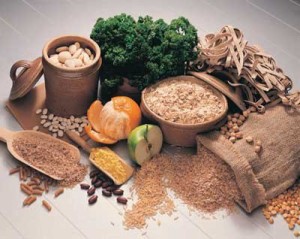Low-Carb Diets the Right Way
By Babar Javed | Life Style | Published 13 years ago
 One way to lose a lot of weight in a hurry is to cut out all manner of carbohydrates from regular meals. And it’s an approach I’ve instructed all my students to adopt for at least the first month of their weight-loss programmes — but not beyond, for one simple reason: our bodies store three grams of water for every gram of carbs consumed. This is not only essential for long-term energy but hydration as well.
One way to lose a lot of weight in a hurry is to cut out all manner of carbohydrates from regular meals. And it’s an approach I’ve instructed all my students to adopt for at least the first month of their weight-loss programmes — but not beyond, for one simple reason: our bodies store three grams of water for every gram of carbs consumed. This is not only essential for long-term energy but hydration as well.
Imagine squeezing a sponge of all the liquids inside. See how dry and mouldy it gets? That’s how your mind and body become after giving up carbs for too long. Sure the immediate weight-loss benefits are great, but it’s really short term, and once you return to your regular routine, the weight pops back on. In my experience I’ve noticed that lost weight can return pretty aggressively — that too with the loss of lean mass.
One common mistake made by those following amateur low-carb diets is the omission of high-fibre whole grains, vegetables and fruits. Without these essentials, you may suffer a decline in performance, both physical and mental due to the absence of phytochemicals. The smart way to go about managing carb intake is to base your carb consumption on your level of activity. So for those who do one hour of intensive exercise (i.e. weight training, mile sprints, swimming or kick-boxing) it is advisable to eat carbs in three out of the six meals daily (when following a one-meal-every-three-hours plan).
The body prefers glucose, and the fuel gained from carbs only assists in this regard as processing carbs generates glucose for the system. Everyone, from office workers to athletes, are prone to headaches, exhaustion, memory loss, loss of sex drive and lethargy as a result of low-carb intake (and inactivity). For those in jobs or lifestyles involving high-endurance movement, carbs are critical to everyday functioning. And it all gets used up in intense workouts: all the available glucose in the blood is consumed to generate energy, without which performance at peak levels is compromised.
Remember to choose mainly fruits, vegetables and high-fibre whole grains before and during your workouts as they are low glycemic-index carbohydrates. The glycemic index ranks different carbohydrate foods according to their effect on our blood-glucose levels. To replenish your glycogen stores after a workout, just eat foods higher up in the glycemic index. By following this nutrition advice, your diet and energy storage system will achieve balance and will be a key long-term performance (and long-term health) partner.


